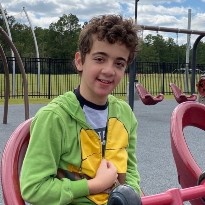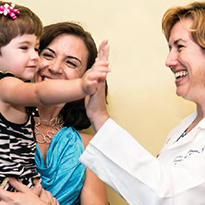Epilepsy is a neurological condition that affects the nervous system. While the underlying etiology of epilepsy is idiopathic up to 70% of the time, it’s actually quite common, affecting one in 100 children or 1% of the population.
Seizures are sudden, abnormal changes in behavior that cause involuntary actions due to a brain malfunction. These actions can be rhythmic movements of extremities, muscle contractions, staring and/or loss of consciousness, just to name a few. Seizures can present in many different ways, and they can last from a few seconds to minutes, on average.
Having two or more unprovoked seizures results in the diagnosis of epilepsy. Provoked seizures are triggered by known causes such as fever, head trauma, lack of oxygen, metabolic or electrolyte abnormalities, ingestions or overdose of drugs. Where the causes are known, they are treated to eliminate subsequent seizures. However, two-thirds of epilepsy cases are caused by an unclear reason and the seizures are treated by antiepileptic medications.
This is where the expertise of our Level IV comprehensive pediatric epilepsy center, recognized by the National Association of Epilepsy Centers, is applied to treat epilepsy in its multitude of presentations. In collaboration with McGovern Medical School at UTHealth, the pediatric epileptologists affiliated with Children’s Memorial Hermann Hospital specialize in comprehensive epilepsy care at the Epilepsy Monitoring Unit (EMU). Before creating an individualized treatment plan, it’s necessary to determine the type or types of seizures the patient is experiencing. The EMU is a large, family-friendly unit with specialized equipment to help identify the type of seizures and the brain location from which they originate, and to aid in the delivery of an individualized epilepsy treatment plan.
Contact Us Refer a Patient



